PROFILES IN HOPE
The Heroes Among Us
Photos: Stephen Travarca, Dana Hoff and Carrie D'souza
Grace under pressure doesn’t begin to describe it. Over the past few months, often amid the most difficult of circumstances, Cleveland Clinic caregivers on the front lines of the COVID-19 outbreak around the world have risen to unprecedented challenges to put patients first. We wish we had space to introduce you to all of these extraordinary professionals. For now, meet just a few of the caregivers whose selfless dedication gives all of us hope for better days ahead.
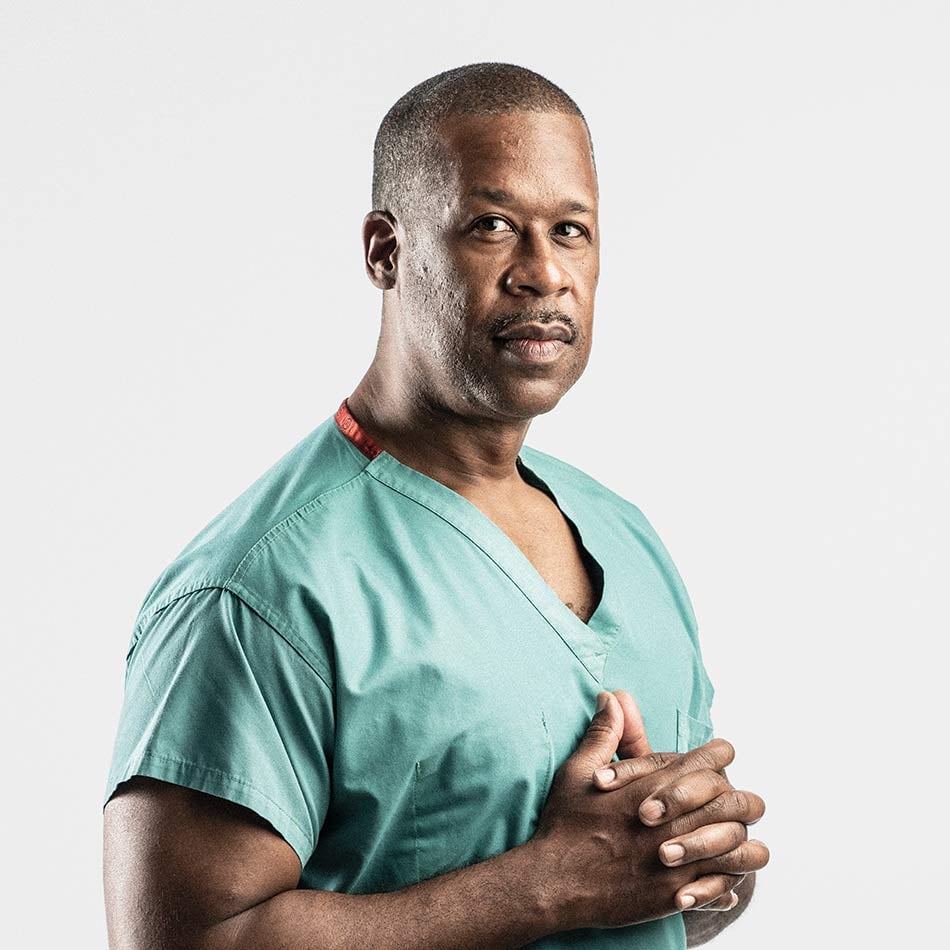
“One of my patients was slowly dying in isolation. He was a very spiritual man, and his personal Bible was there in the room with him. His family asked me to read a few passages to him, including Psalm 23: ‘Though I walk through the valley of the shadow of death, I will fear no evil ….’ So I did. After he was extubated, I sat by his side, held his hand and read the Scripture to him. Shortly after that, he passed away. I felt like I needed to do that. I wanted him to hear those words, even if he couldn’t.”
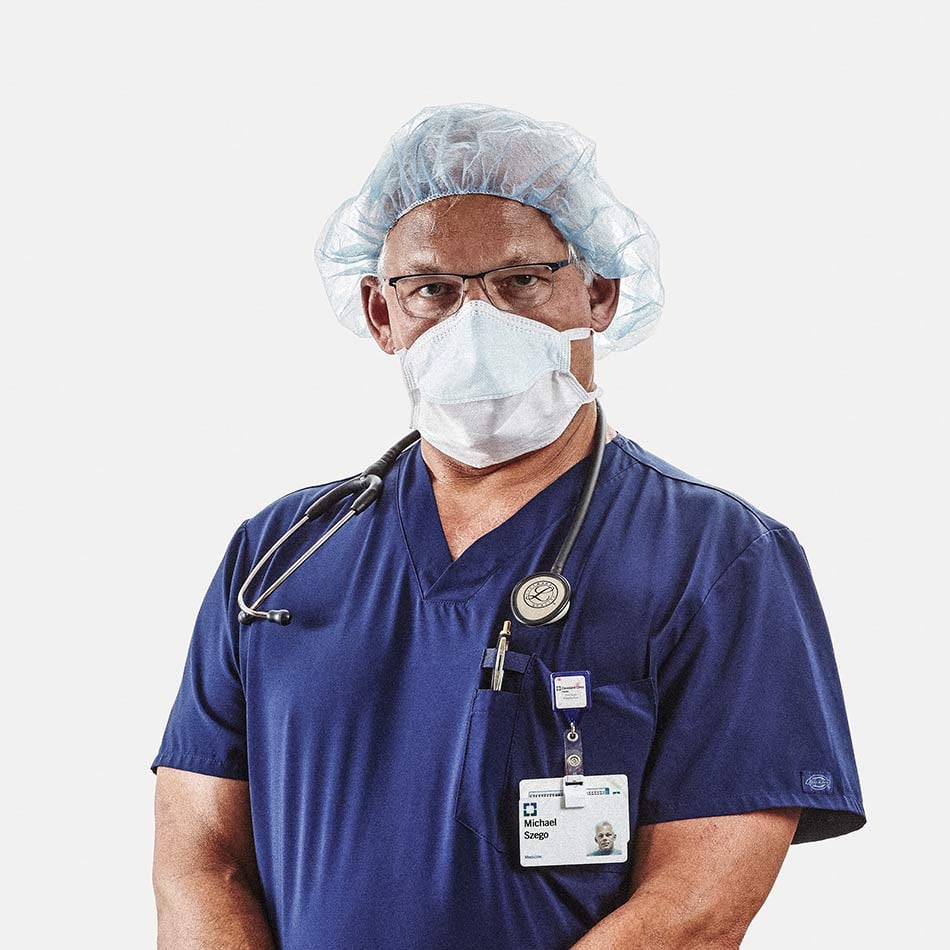
“I spent time in the military, and I always said that nothing matches that camaraderie. But it’s the same in healthcare. I’d like to think that now that healthcare providers are looked at as heroes, it will spur a whole new generation of healthcare workers. People are seeing caregivers provide hope. Hope to me is the positively indefatigable human spirit. You just keep going. You just don’t quit.”
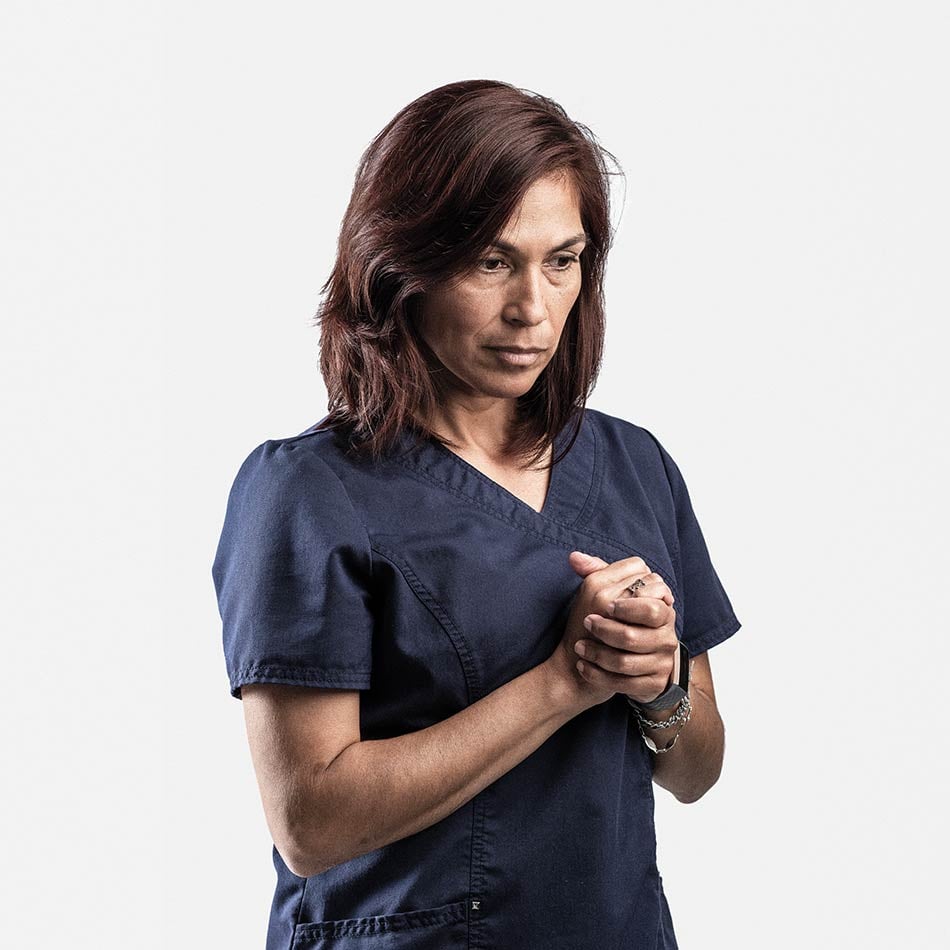
“Ever since I was a little girl in Lima, Peru, I wanted to be a physician. My parents worked so hard to give me a better education, so I was raised by my grandparents. I became a geriatrician in honor of them. This crisis is an opportunity to stand up and be part of the solution. It lets us do what we’re here for. We’ll learn from this. We’ll become stronger. And we’ll develop strategies to prevent this from happening again. I was born to help people, and this is what I’m doing right now. I feel grateful for that.”
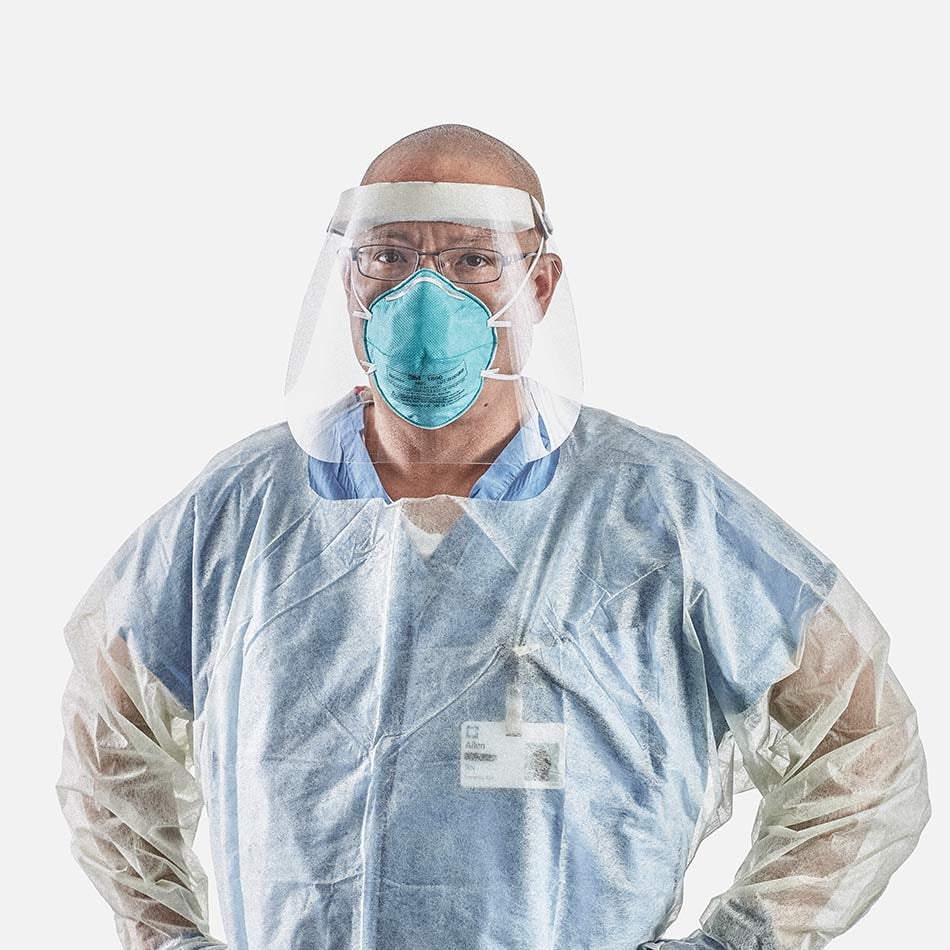
“You can feel the energy change when patients start coming into the emergency department. The challenge quickly becomes going from room to room, from COVID-19 patient to non-COVID-19 patient. Switching in and out of that mentality to face each different scenario is difficult. And getting in and out of the gear can be frustrating. It gets so hot underneath the layers. It all takes a toll on you. But in the end, this is what we signed up for. Keeping hope alive during this just means doing my job — taking care of patients and letting them know not to worry.”
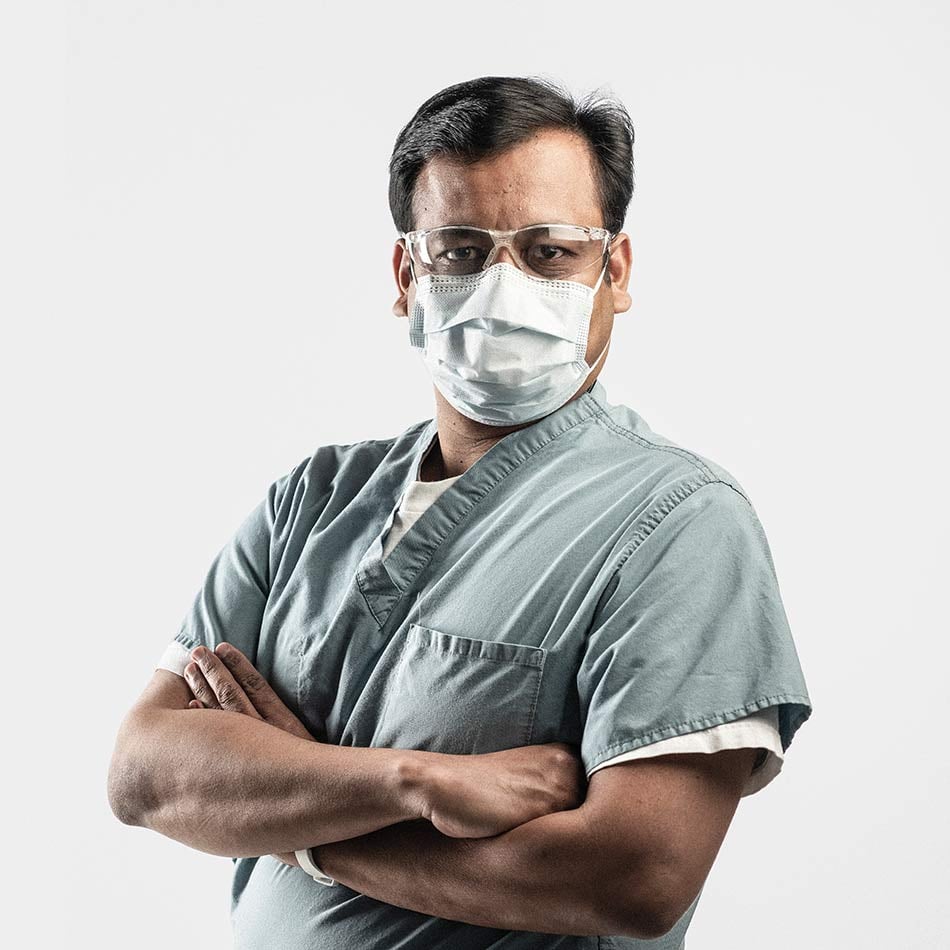
“Necessity is the mother of invention — I truly believe that. I was part of a group that created an isolation cube for safely intubating patients with COVID-19. Within a day, we had a prototype made from PVC piping, thanks to Bill Davies in Clinical Engineering. Dr. Jonathan Castro improved the design by suggesting we use disposable ventilatory covers. It really was a team effort. Throughout all of this, everyone has been coming together to contribute in any way they can. The dedication, the energy, the trust — they’re inspirational. It makes you work even harder to beat this disease.”
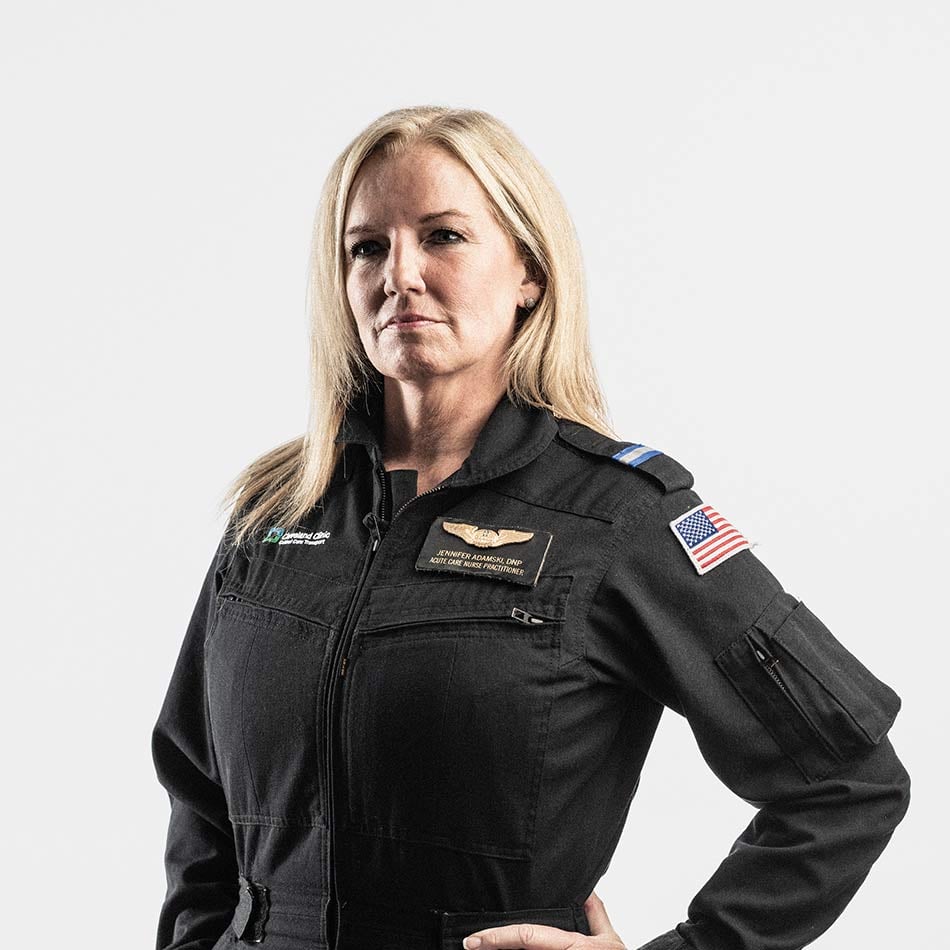
“Driving home after a 14-hour shift of flying patients with COVID-19, I came upon a multi-car accident. Four other nurses also stopped, all from different hospitals. Someone was lying in the middle of the freeway with a head injury. We assessed the patient in unison, like a dance. I was so touched by this experience. There is such truth in the quote: ‘The best way to find yourself is to lose yourself in the service of others.’ I really can’t remember a time in my career when I was more proud to call myself a nurse than during this pandemic.”
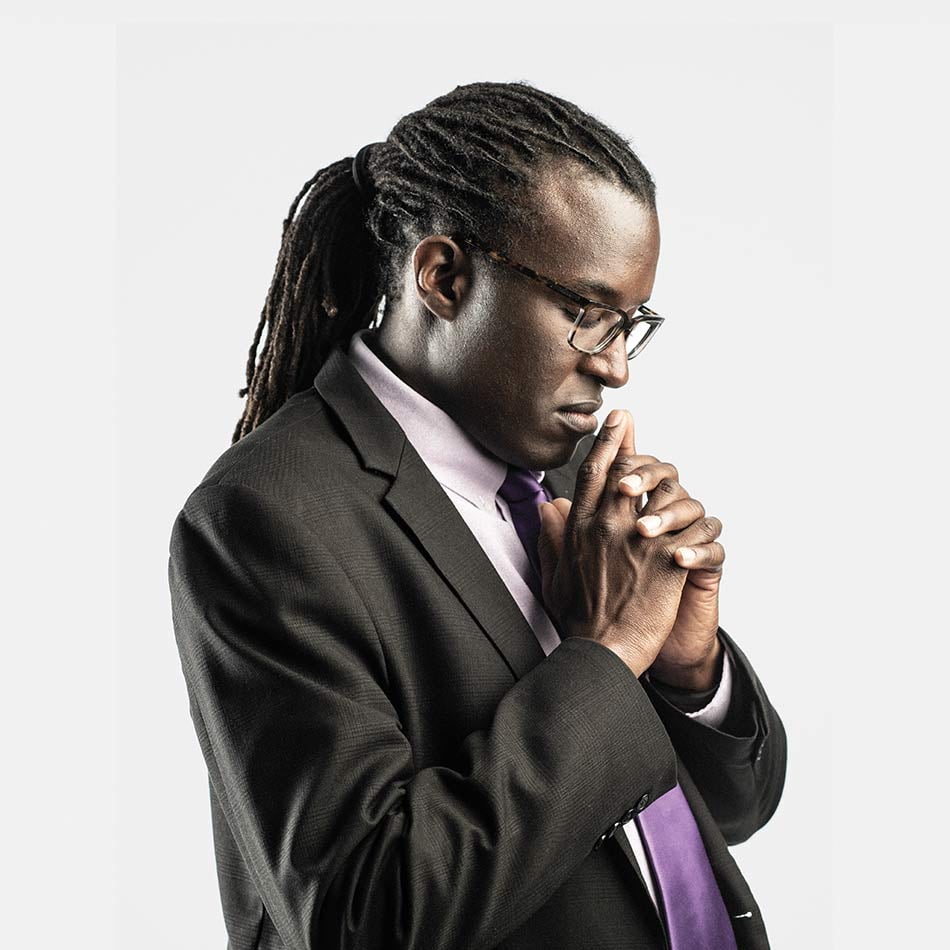
“The Center for Spiritual Care moved to remote care in compliance with patient safety protocols. We’ve been making phone calls and FaceTime calls and sending text messages to patients and their families. It’s new territory. To fully communicate compassion, we still need to be fully present, even remotely. That means being totally focused on the person on the other end of the conversation and allowing folks to tell their truths. Accepting their emotional status provides hope because they feel heard. Caring for their inner beings in the midst of a pandemic is huge. It’s spiritually essential work.”
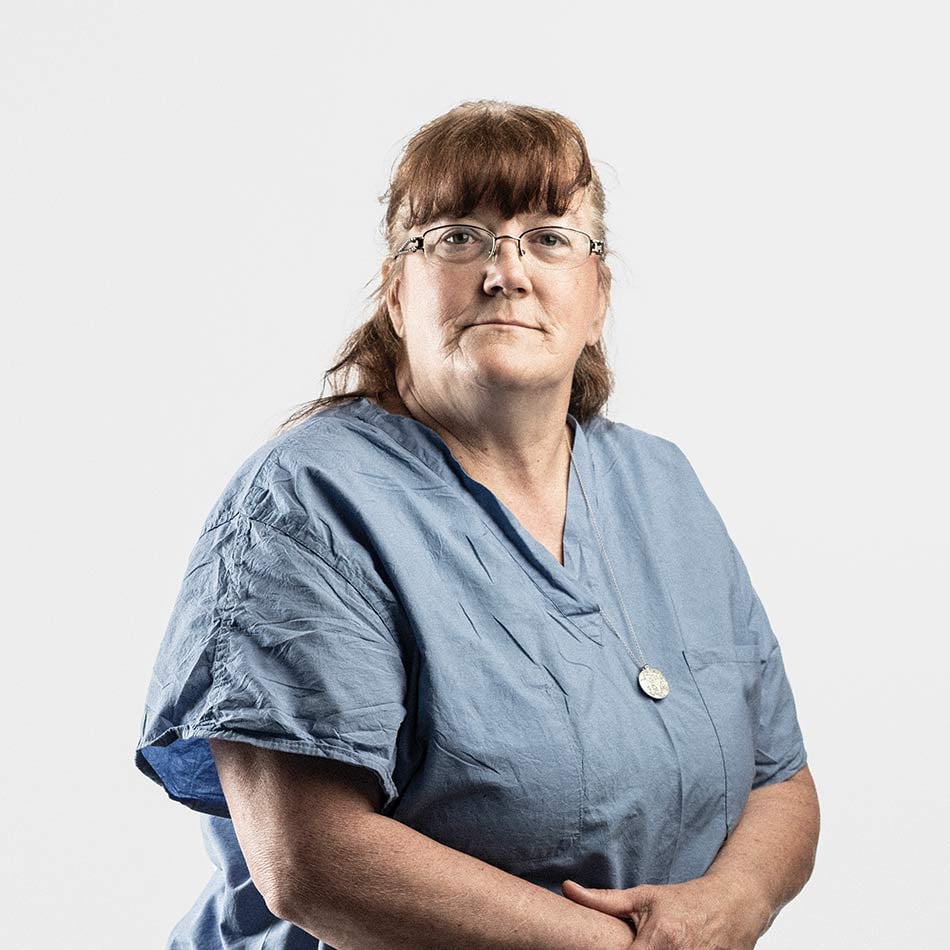
“When I went in the room, the patient was crying. I asked if I could help with anything. She said her mother had passed away the night before. I told her I was so sorry. We talked a bit. My heart was broken for her. Afterwards, I brought her a sympathy card and a vase of pink carnations. She said that she couldn’t thank me enough and that her mother’s favorite color was pink. Sometimes the little things really make a difference. Little things mean a lot to people at a time like this.”
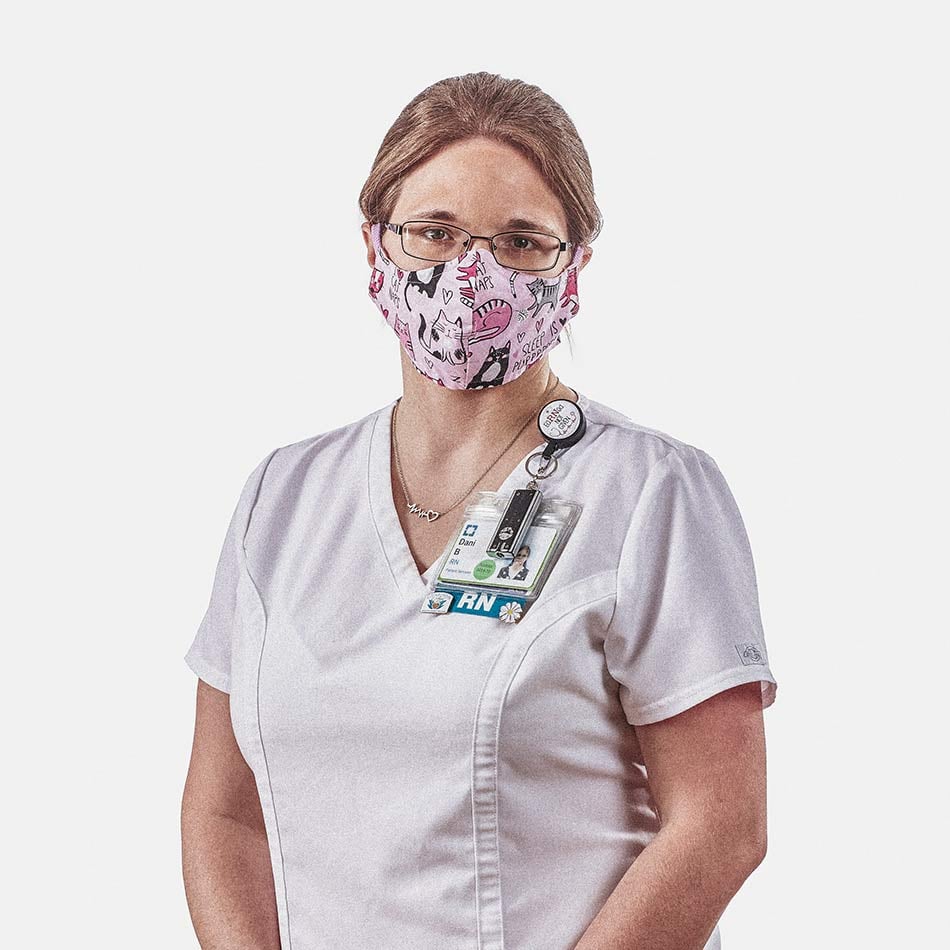
“When I was young, my mother was frequently in the hospital where I now work. Everyone treated her like family. At the time, that really eased my mind, knowing there were good people taking care of her. I like knowing that I make a difference in the same way — especially now, when patients can’t see their families. I just want to be the person who can ease their minds and help them stay in contact with their families, on an iPad or however I can. I find that it helps the patients and it helps me just to be in the room and talking with people.”
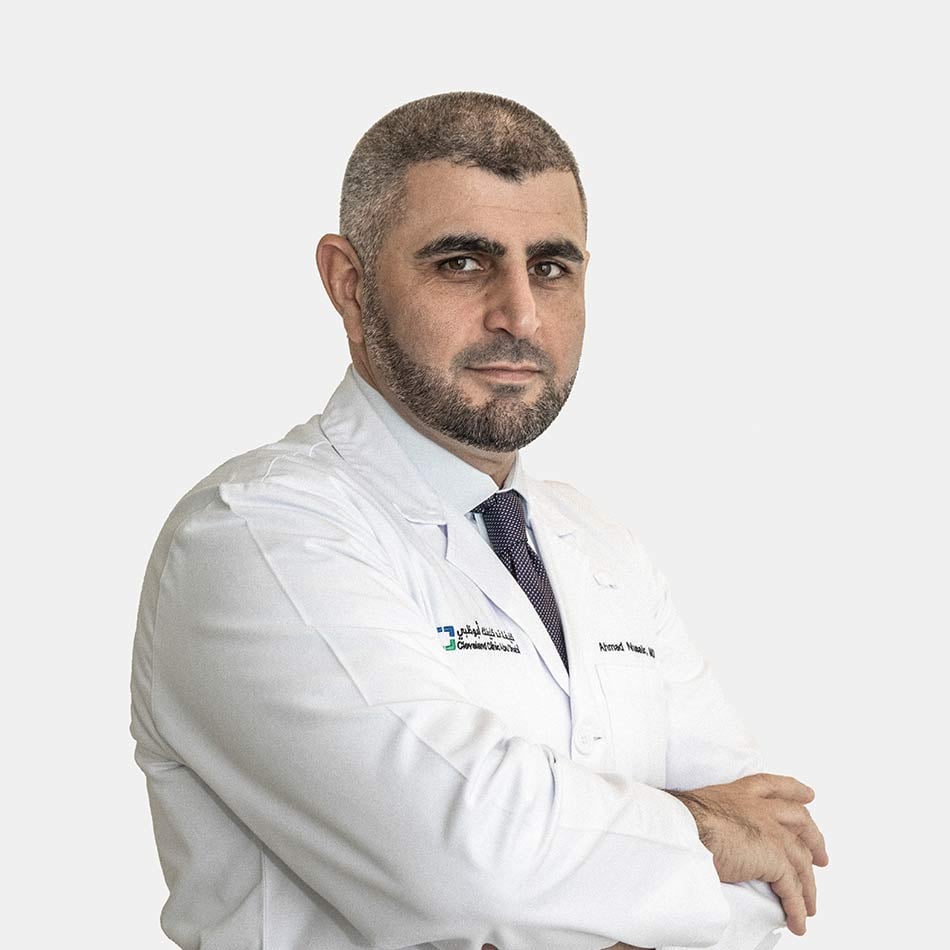
“I contracted COVID-19 myself. I didn’t have a severe illness, but being in isolation was very hard. The support I got from my family and from my Cleveland Clinic Abu Dhabi family helped me get through. We never despair. Hope is the driving force that keeps us motivated to overcome this calamity. I tell my patients about all the others who beat the illness, and that they’re being looked after by the best caregivers at one of the best institutions in the world. We do what we do because we care. We don’t seek recognition. The only reward we seek is seeing patients get better.”
